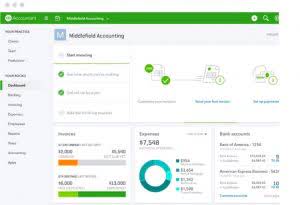
This ensures that all transactions are properly recorded and that the financial Food Truck Accounting statements accurately reflect the financial position of the business. By holding transactions until the cause of the discrepancy can be determined and corrected, companies can avoid misallocating funds and ensure that their books remain balanced. Sometimes, businesses encounter transactions or journal entries that require further investigation or clarification before they can be properly recorded.

Purpose
The process of resolving entries in a suspense account is methodical, requiring diligent examination of each transaction to determine its rightful place in the financial records. Accountants must scrutinize the details surrounding each entry, often collaborating with other departments to gather missing information or to clarify ambiguous details. This may involve tracing back the origins of a deposit or dissecting a complex payment received, which could be a blend of income, customer deposits, or even an error that needs rectification. Suspense accounts are used to record transactions that have errors, incomplete or inaccurate information, or delayed or missing documentation.

Why You Can Trust Finance Strategists
- Data errors can occur during the transmission, processing, or recording of financial information.
- However, if the clearing of suspense accounts is not appropriately monitored and managed, there can be a risk of erroneous financial results and fraudulent activities.
- For the past 52 years, Harold Averkamp (CPA, MBA) hasworked as an accounting supervisor, manager, consultant, university instructor, and innovator in teaching accounting online.
- Suspense accounts are commonly used when there is no paper trail for the transaction or the nature of it hasn’t been informed yet.
- In situations where a financial transaction spans multiple accounting periods, a suspense account can be used to hold the entry until the appropriate period is reached.
Errors in recording transactions can be caused by human error, such as a typographical mistake, or system error, such as an incorrect date entered into the accounting software. A suspense account is the general ledger account that the company uses for recording transactions temporarily. When recording those transactions, the accountant may be unsure of the type of account most appropriate to record those transactions. The presence of unresolved suspense accounts can have implications for the accuracy and completeness of financial statements. If suspense account items are not identified and resolved promptly, they can result in misstatements in financial statements.
Example 3: Partial payment on invoice
A suspense account is used when the proper account cannot be determined at the time the transaction is recorded. When the proper account is determined, the amount will be moved from the suspense account to the proper account. It can also be used when there is what is a suspense account a difference between the debit and credit side of a closing or trial balance, as a holding area until the reason for error is located and corrected. Suspense accounts in a company’s general ledger typically contain entries where there are uncertainties or discrepancies that need to be resolved.
Balance Sheet
In such cases, a suspense account allows for the entry assets = liabilities + equity to be recorded, pending the retrieval or completion of the required documentation. Once the missing documentation is obtained, the entry can be properly allocated. A suspense account, also known as a suspense ledger or suspense clearing account, is a temporary holding account that is used in accounting when there is uncertainty or discrepancy in financial transactions.

Providing comprehensive training and ongoing education to accounting staff can significantly reduce the incidence of suspense accounts. Well-trained personnel are more likely to accurately record and classify financial transactions, identify potential errors or discrepancies, and follow proper reconciliation procedures. This transition is not merely a transfer of numbers but a reconciliation that affirms the integrity of the accounting records.
